A European Assembly of local and regional elected representatives
The Congress of Local and Regional Authorities is an institution of the Council of Europe, responsible for strengthening local and regional democracy in its 46 member states and assessing the application of the European Charter of Local Self-Government. As the voice of Europe’s municipalities and regions, it works to foster consultation and political dialogue between national governments and local and regional authorities, through cooperation with the Council of Europe’s Committee of Ministers.
The Congress is made up of two chambers: the Chamber of Local Authorities and the Chamber of Regions. It has 306 representatives and 306 substitutes, all appointed for five years, representing over 130,000 local and regional authorities in the Council of Europe’s 46 member states. The Congress’s work is organised with three committees: a Monitoring Committee, a Governance Committee and a Social Inclusion Committee.
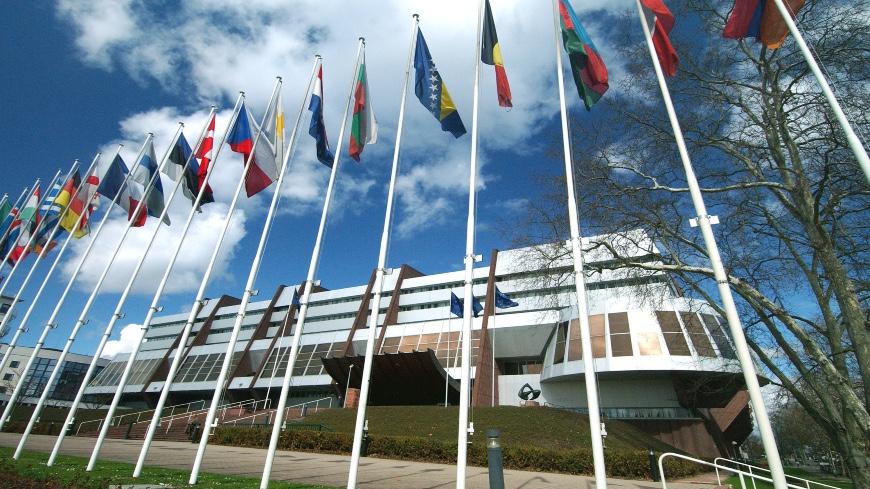
The role of the Council of Europe
In the aftermath of the Second World War, the Council of Europe became the first intergovernmental organisation in Europe. It was set up on 5 May 1949 to federate European states around peace, democracy and human rights. Today, the organisation protects the rights of 700 million citizens from its 46 member States: non-discrimination and fight against racism, defence of cultural diversity, gender equality. The European Union brings together 27 member States politically and economically.
RESOURCES
European Union | Council of Europe
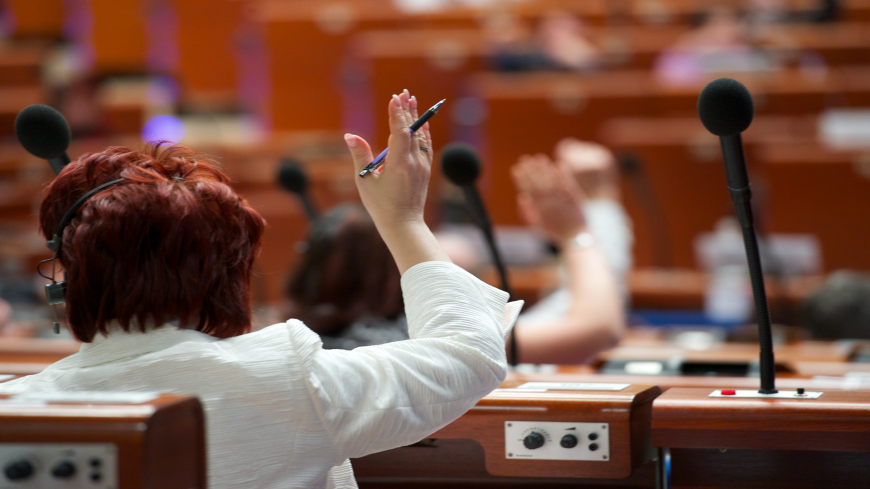
Who are the 612 Congress members?
The Congress of Local and Regional Authorities is one of the political bodies of the Council of Europe. Its mission: Promote, strengthen and defend local and regional democracy in Europe by following the principles set out in the European Charter of Local Self-Government.
Composed of representatives with an elective mandate in a local or regional authority, the Congress has 612 members representing more than 130 000 local and regional authorities from the 46 member States.
Congress members are grouped by national delegations and political groups and are divided between the two Chambers sitting in the Congress.
RESOURCES
Congress members & their national delegations
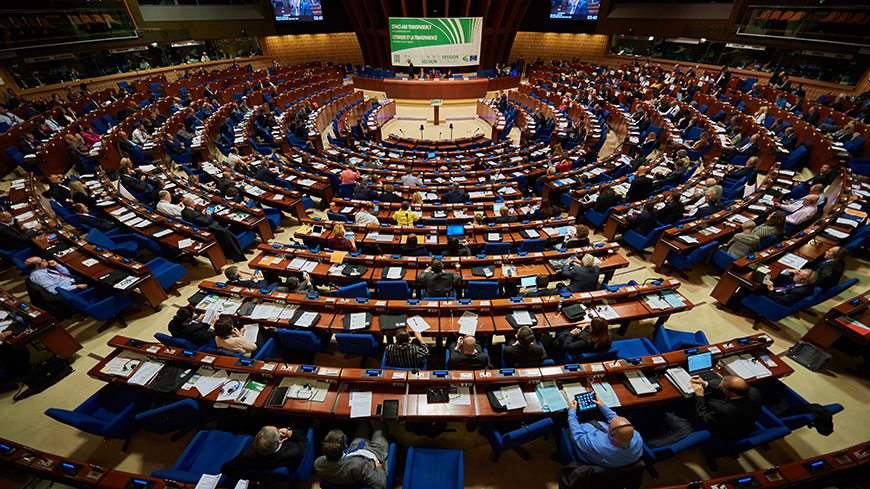
Congress sessions
The Congress meets twice a year in Strasbourg, where it welcomes delegations from European organisations, as well as delegations from certain non-member States, received as special guests or observers.
These plenary sessions provide a privileged forum for political dialogue for members and enable them to debate and adopt the reports presented by the Congress secretariat. Sessions of both Chambers also take place during the plenary sessions.
Every two years, the Congress elects its President in turn from among the representatives of each chamber.
RESOURCES
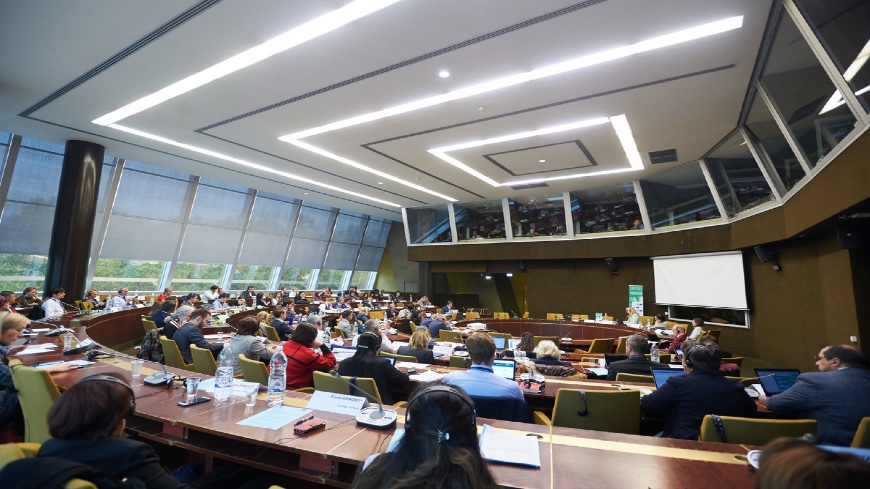
Social Inclusion Committee
The Committee on Social Inclusion and Human Dignity (former Current Affairs Committee) is responsible for ensuring contributions by local and regional authorities to the promotion and implementation of Council of Europe’s core values in the areas of social cohesion, equality and non-discrimination
It thus prepares work on themes such as social cohesion, citizen participation, education, sustainable development, intercultural and inter-religious dialogue, protection of children against sexual abuse, youth participation, integration of migrants, from the point of view of the fundamental values of the Council of Europe.
RESOURCES
- Preventing radicalisation and building inclusive societies
- Migration and integration
- Gender equality
- Children's rights
- Roma and travellers
Toolkit for organising intercultural and interreligious activities
Human rights handbook for local and regional authorities. vol1
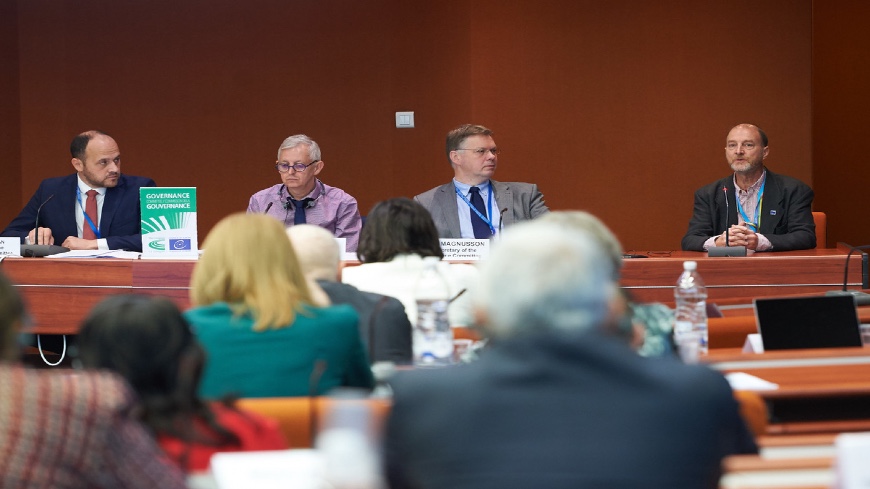
Governance Committee
The Governance Committee is responsible for matters within the statutory mandate of the Congress such as governance, public finance, cross-border and interregional cooperation and e-democracy, as well as cooperation with intergovernmental bodies.
The Committee is assisted by a Group of Independent Experts.
RESOURCES
- Group of independent experts on the European Charter of local self-government (GIE)
- Local and regional governance
- Preventing corruption and promoting public Ethics
European Code of conduct for all Persons involved in Local and Regional Governance
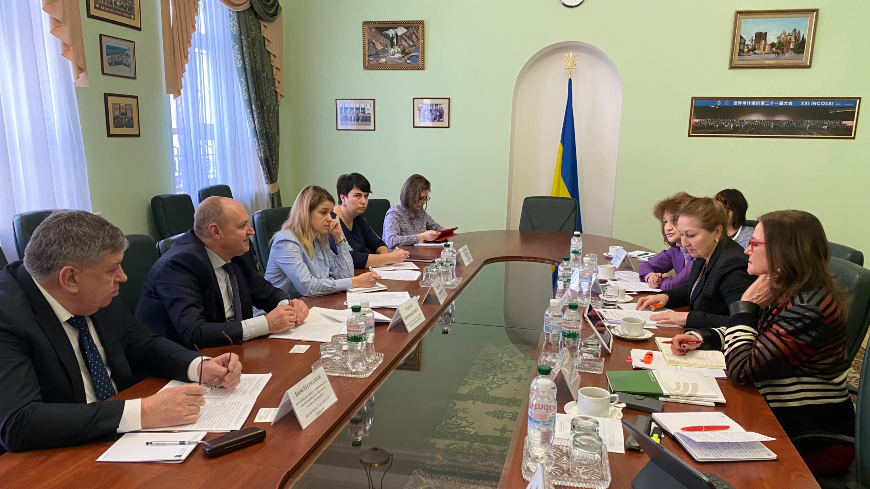
Monitoring Committee
The Monitoring Committee is responsible in particular for monitoring the application of the European Charter of Local Self-Government by the member States, preparing reports on the situation of local and regional democracy in the countries which have ratified the Charter and studying certain specific questions relating to local and regional democracy.
The reports, recommendations and resolutions that it adopts provide information to governments, parliaments, associations, elected representatives and the media.
The Committee also encourages member States to assess the situation of local democracy, in the light of the Charter, and to identify the obstacles preventing them from fully applying it. Numerous legislative reforms have been set in motion by member states on the basis of the findings of these monitoring activities.
RESOURCES
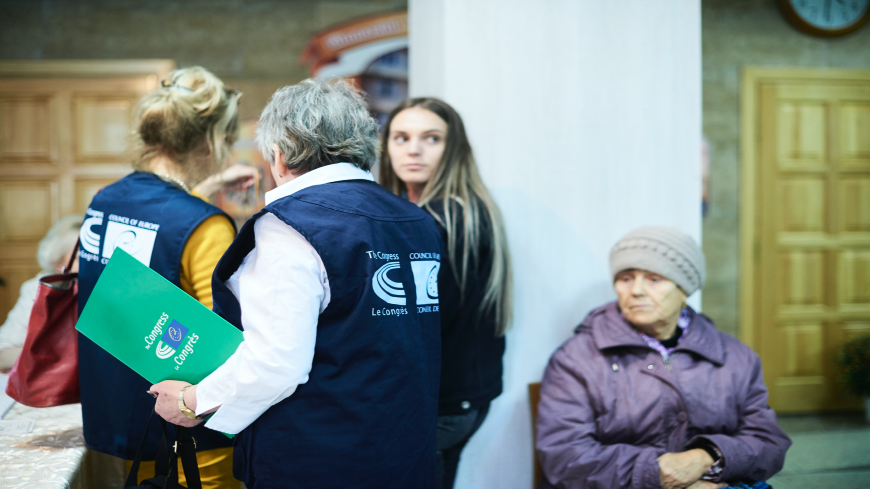
Election observation
The Congress periodically observes local and regional elections, especially in Council of Europe member states. Observation activities, which cover both polling and election campaigns, are carried out at the official request of the national authorities concerned.
At the end of the observation mission, a preliminary statement is made by the Congress delegation and a report is then prepared and presented to the Congress Session, which includes an analysis of the election campaign on election day and recommendations/ improvements to be made.
Congress election observation missions are conducted in co-operation with the Parliamentary Assembly of the Council of Europe and the Venice Commission, in particular through the Council for Democratic Elections, but also with other international organisations such as the OSCE Office for Democratic Institutions and Human Rights. The Committee of the Regions of the European Union is also invited to participate in observation missions carried out by the Congress.
RESOURCES
Election observation at Grassroots level - Twenty years of experience in electoral matters
Observation of local and regional elections
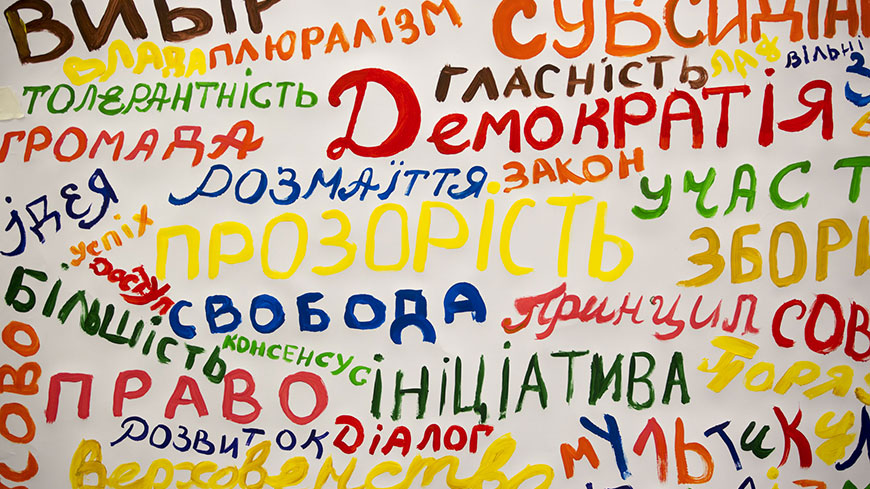
Congress co-operation projects
The Congress has reinforced co-operation and partnerships with member states and other institutions and European associations in order to consolidate territorial democracy. Activities in the field are proposed to further ensure the implementation of the European Charter of Local Self-Government and of the Congress’ recommendations.
Projects designed by the Congress are part of the democratic component of Council of Europe Action Plans for its member States. Moreover, the Congress is active in the neighbourhood policy of the Council of Europe, aimed at supporting territorial and legislative reforms in neighbouring countries.
RESOURCES
- Armenia
- Bosnia and Herzegovina
- Georgia
- The Republic of Moldova
- Ukraine
- Kosovo*
- South-Med Partnership
*All references to Kosovo, whether the territory, institutions or population, in this text shall be understood in full compliance with United Nations Security Council Resolution 1244 and without prejudice to the status of Kosovo.
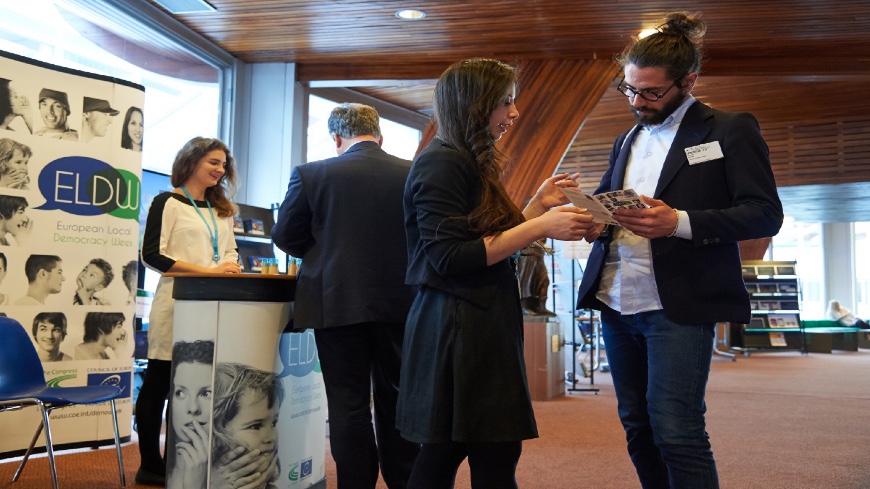
European Local Democracy Week
The European Local Democracy Week (ELDW) is an annual European event in the framework of which local authorities and associations from the 46 Council of Europe member States organise public initiatives to promote and foster democratic participation at local level.
Participants are encouraged to organise events in line with the theme of the ELDW. Each year, a flagship event takes place in the week of 15 October. This date was chosen as a tribute to the European Charter of Local Self-Government, which was opened for signature on that date in 1985.
RESOURCES

Youth
The Congress strongly believes in the power of youth participation for building more democratic, inclusive, and sustainable societies. Therefore, we encourage local and regional elected officials to actively include youth in their policy making and to develop youth participation.
The Congress does this work in collaboration with the youth sector of the Council of Europe which elaborates guidelines, programmes and legal instruments for the development of coherent and effective youth policies at local, national and European levels.
The Youth sector of the Council of Europe provides funding and educational support for international youth activities aiming to promote youth citizenship, youth mobility and the values of human rights, democracy and cultural pluralism. It seeks to bring together and disseminate expertise and knowledge about the life situations, aspirations and ways of expression of young Europeans.
RESOURCES
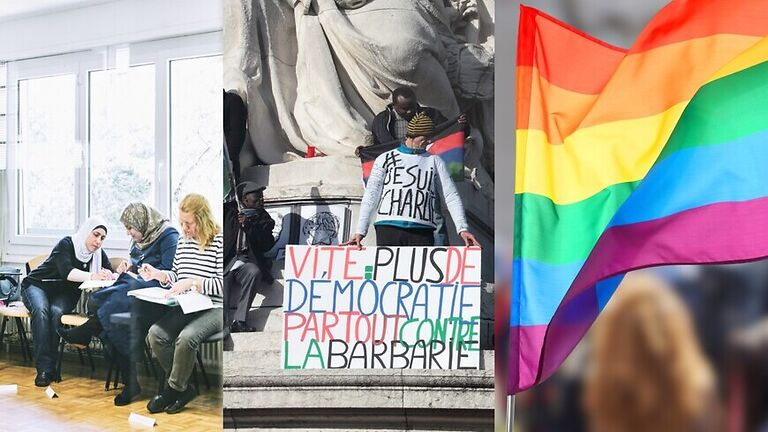
Other thematic activities
The Congress of Local and Regional Authorities of the Council of Europe provides a political platform to reflect on the role of local and regional authorities and to take action with regard to the major challenges of modern society, through the work of its members and its committees.
Over the past two decades, the Congress developed and refined its approach and activities in the fields of human rights promotion, gender equality, the strengthening of local and regional democracy, the prevention of corruption and the promotion of public ethics. Recently, new challenges have surfaced to which the Congress reacted swiftly, elaborating coherent and credible policies for preventing radicalisation, for the management of migration and the improvement of integration policies.
RESOURCES



